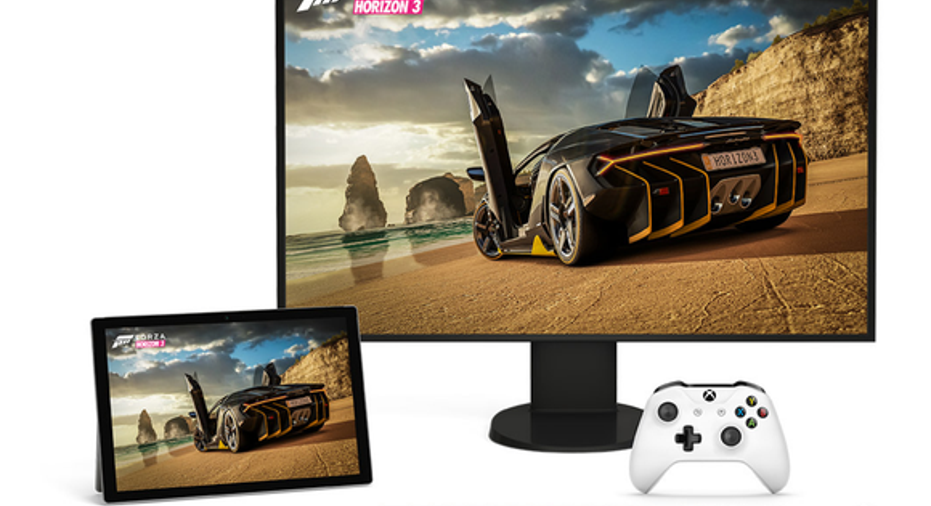This Windows 10 Rival Looks Like a Failure

Image source: Microsoft.
Windows 10 isn't as popular as Microsoft (NASDAQ: MSFT) hoped.
Last year, the Redmond tech giant set lofty expectations for its latest operating system, aiming to have it installed on 1 billion devices by 2018. But in July, Microsoft admitted defeat, saying that it would take longer than it had originallyanticipatedfor Windows 10 to cross that important threshold.
The adoption curve appears to be driven more by falling PC sales than direct competition. One operating system in particular that hoped to challenge Windows 10 has performed far worse: Valve's SteamOS, launched last year, is an attempt to drive gamers away from Microsoft's platform.Fortunatelyfor the Windows maker, interest hasremained modest.
Over 125 million users, but less than 500,000 sales
Valve is a private company known largely for its application storefront, Steam. Like an iTunes for video games, Steam is a PC-based marketplace designed tofacilitatethe saleand distribution of PC games. Valve offers Steam on both Mac and Linux, but the majority of its games are designed for Windows, and the majority of its users rely on Microsoft's operating system.
Valve is a major player in the PC ecosystem. In February 2015, it announced that it had more than 125 million active users. For comparison, there are just over 350 million machines running Windows 10 today. Consumers rely on their PCs for all manner of uses, but for many, gaming is a major driving factor. Valve could potentially pull several million PC gamers away from Windows if it could build a compelling operating system of its own.
In 2013, Valve launched its own PC operating system, SteamOS. But it remained in beta form for more than two years. It wasn't until last November that the first retail PCs running SteamOS hit store shelves. Most of the PC manufacturers that offer SteamOS-powered devices (called Steam Machines) are small, gaming enthusiast companies. But Valve has managed to attract at least one major PC manufacturer: Dell's Alienware Steam Machine is a SteamOS-powered computer.
But demand has been tepid. In June, Valve announced that it had sold just over 500,000 Steam Controllers. Every Steam Machine sold comes with a Steam Controller, meaning that at most, just over 500,000 Steam Machines have been sold. In reality, the number is likely to be far lower -- Valve sells Steam Controllers individually, and they're fully compatible with other operating systems, including Windows. The bulk of Steam Controllers, then, could be owned by Windows gamers rather than Steam Machine owners.
Microsoft bets on gaming to monetize consumers
That's great for Microsoft, as it looks to PC gaming to maintain the relevancy of the Windows platform. Since Windows 10's debut, Microsoft's management has consistently cited gaming as a way to monetize its operating system.
"We see early signs of success in Windows driving increased...monetization of services like search, Store, and gaming," said CEO Satya Nadella on Microsoft's April earnings call. "Bringing top Xbox One titles to [the Windows 10 app store] helped grow gaming hours on Windows 10 by 50% over last quarter."
Windows 10 includes an Xbox app which allows Windows 10 users to connect to Xbox Live, Microsoft's gaming network. Last fall, Microsoft said it would no longer disclose the number of Xboxes it sold in a given quarter, focusing instead on the number of active Xbox Live users. Given Microsoft's increasing focus on PC gamers, that metric may offer more insight. At the same time, PC gamers have proven to be a reliable source of revenue for the PC space. Even as Microsoft's traditional hardware partners struggle, companies focused on PC gaming, such as NVIDIA, have performed well.
The success of SteamOS may have always been a long shot, but given Steam's popularity, it posed a real risk to the Windows platform.Valve isn't giving up on SteamOS, but at least for now, there appears to be virtually no demand for the operating system.
A secret billion-dollar stock opportunity The world's biggest tech company forgot to show you something, but a few Wall Street analysts and the Fool didn't miss a beat: There's a small company that's powering their brand-new gadgets and the coming revolution in technology. And we think its stock price has nearly unlimited room to run for early in-the-know investors! To be one of them, just click here.
Sam Mattera has no position in any stocks mentioned. The Motley Fool owns shares of and recommends NVIDIA. The Motley Fool owns shares of Microsoft. Try any of our Foolish newsletter services free for 30 days. We Fools may not all hold the same opinions, but we all believe that considering a diverse range of insights makes us better investors. The Motley Fool has a disclosure policy.



















